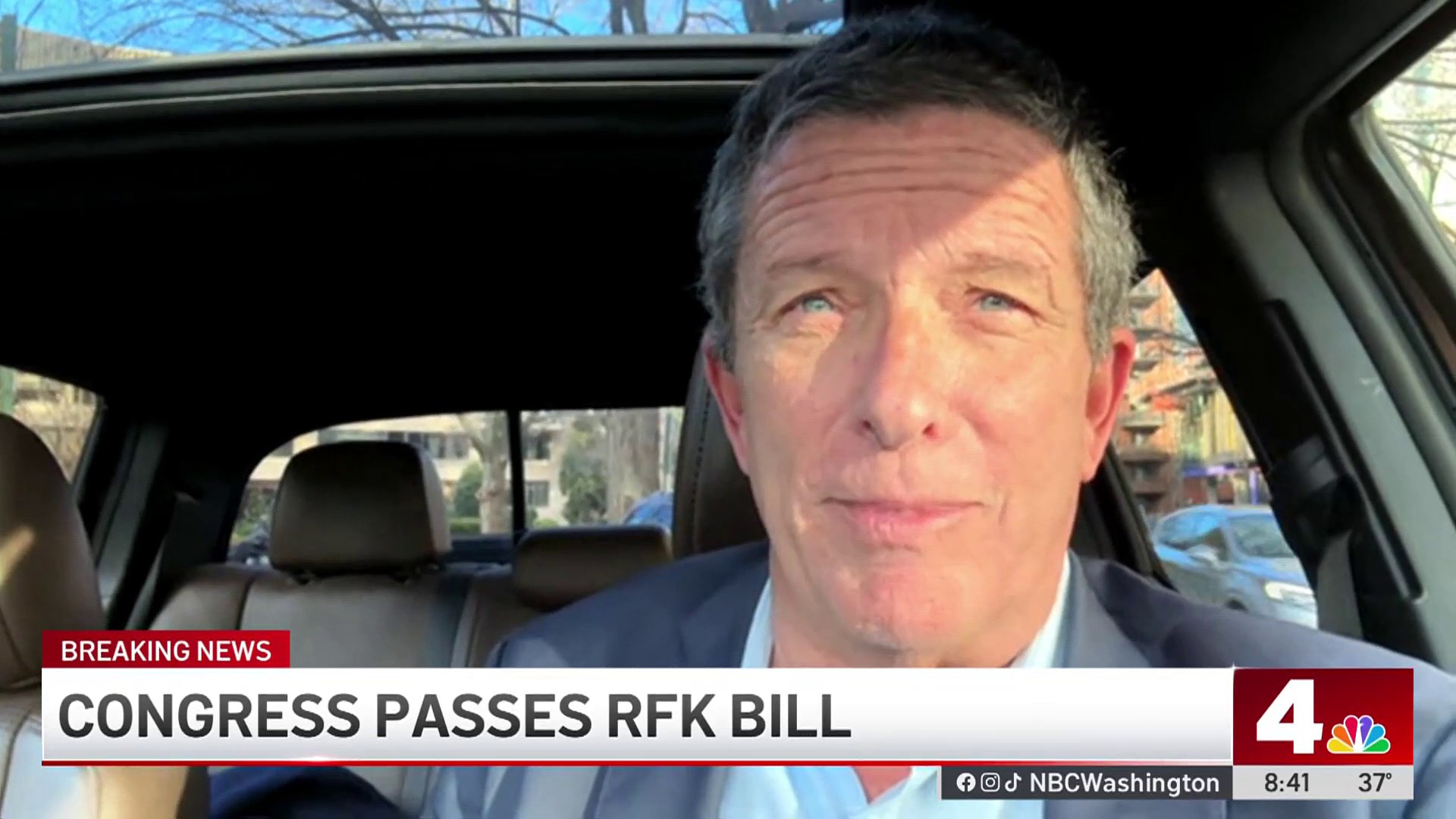Two very hot Washington, D.C., political battles are about to cross paths as an emerging market of "TOPA chasers" is trying to reach into the short-term rental market, the News4 I-Team found.
One expert calls the Tenant Opportunity to Purchase Act (TOPA) a $100 million-per-year industry, but that industry could be lowering rental inventory and driving up rents as landlords seek to avoid the TOPA constraints by listing their available properties on short-term rental websites instead.
"I do know that people are starting to explore Airbnb more frequently because there's less risk involved," said Realtor Jacqueline Battistini, who rents traditional properties and hosts guests on Airbnb.
The "risk" Battistini is referring to is the rental ransom first exposed by the I-Team earlier this month. Buyers and sellers shared horror stories of home sales lost or delayed by tenants using the decades-old TOPA law to hold out for a huge piece of the profits.
"It's all I do," said attorney Andrew McGuire, who drives around in a TOPA mobile, recruiting renters as clients. “I've spent a year building this business.”
He said he tries to get them the most money by selling their right to buy to the highest bidder once the property they rent goes up for sale.
"Tenants have not only the right to buy the house, they have the right to essentially sell the house, and this is the magic of TOPA," said McGuire.
Local
Washington, D.C., Maryland and Virginia local news, events and information
That highest bidder then gets to buy the house, even if the seller already had a deal with someone else.
Battistini said she's seen tenants walk away with tens of thousands of dollars, which makes some landlords leery of singing leases, especially if they may be planning to eventually sell the property later.
"They can make roughly the same amount of money," said Battistini. "And should they decide to sell or change their minds about what they're doing, they're not putting themselves at that risk of being held hostage in that situation."
In a recent sales listing, an owner advertised six bedrooms, four baths, and specifically posted that "all units were rented Airbnb, so no TOPA required!"
But McGuire says not so fast.
Since D.C. law doesn't define what a tenant is, he believes Airbnb and other short-term rental guests may qualify, even if they only stayed a few days.
"My view of the law is that 'tenant' would be anything short of a 'trespasser,'" said McGuire. "To anybody out there in Airbnb, if the property is on the market and you're there, call me."
The TOPA law was designed to protect affordable housing and keep renters in their homes by giving them the chance to buy.
Airbnb says it’s absurd to think tourists who rent a room short-term would qualify.
The overwhelming majority of guests in the D.C. metro area are tourists visiting from other places, not D.C. residents, a spokesperson said.
"We strongly oppose any actions taken by landlords that replace long-term rentals or affordable housing with short-term rentals," said Airbnb press secretary Crystal Davis, adding that almost 90 percent of D.C. hosts are sharing extra space in their primary homes a few days per year.
Regulation of that industry is another fight that's been brewing within the D.C. council; until now those issues have remained separate.
"We usually do not think of a short-term visitor as having TOPA rights, that was not the intention of the law," said D.C. Councilwoman Anita Bonds, who chairs the housing committee.
But she acknowledged she's heard of that happening.
In fact, the seller from that recent listing told the News4 I-Team his buyer decided to pay the Airbnb guests to sign over their TOPA rights, just in case.
"Well, that's why we have to have legislation to address this matter," said Bonds. "One of the things we have to do is clearly define 'tenant.'"
Bonds plans to form a working group to look at ways to revise the TOPA law as early as this summer.
If the council doesn't act, more and more landlords might keep their properties off the regular rental market, lowering inventory even more, Battistini said.
"I could see how in the future it could have an impact if this continues to go down the road that it's going," she said.
Reported by Jodie Fleischer, produced by Rick Yarborough, and shot and edited by Jeff Piper.



